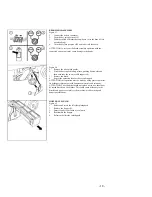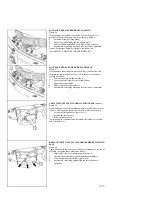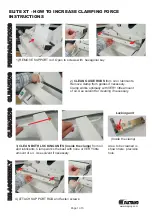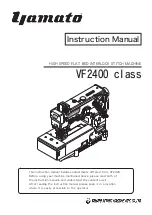
POLYPROPYLENE BRUSH (PPL)
It is used on all types of floors, which are hot water resistant (not more than 60°C).
The Polypropylene brush is non-hygroscopic and therefore keeps its characteristics
even if working on wet floors.
NYLON BRUSH
It is used on all types of floors with excellent wear and hot water resistance (more
than 60°C). The nylon is hygroscopic and so working wet, in time, it looses its
characteristics.
TYNEX BRUSH
The brush bristles are charged with very aggressive abrasives. It is used to clean
very dirty floors. To avoid floor damages, work strictly only with the necessary
pressure.
STEEL BRUSHES
Bristles are made of steel wire or flat blades or are mixed steel and synthetic fibres.
The steel wire brush is used to remove scale from badly uneven floors or floors with
wide joints between tiles. Brushes with flat steel bristles (stiffer) are used to clean
the toughest scale.
THICKNESS OF THE BRISTLES
The thicker the bristles are, the more rigid they will be. These ones are therefore
used on smooth floors or with small joints. On uneven floors with deep joints it is
recommended that, softer bristles, which enter more easily in depth, be used. Please
bear in mind that, when the bristles are worn out and get too short, they will get
rigid and cannot penetrate anymore. As well as for thick bristles, the brush will
begin to jump.
PAD HOLDER
The pad holder is recommended to clean glossy areas. There are two types of pad
holders: 1.The traditional pad holder is equipped with anchor points which allow
the abrasive pad to be held and dragged during the work process. 2.The pad holder
is of the
CENTER LOCK
Type, apart from the anchor points, is equipped with a central blocking release
system made in plastic. This allows a perfect match with the abrasive pad and to
hold it without the risk of falling down. This type of pad holder is recommended
especially for machines with more brushes, where the centering of the pads is
difficult.
- 24 -

































